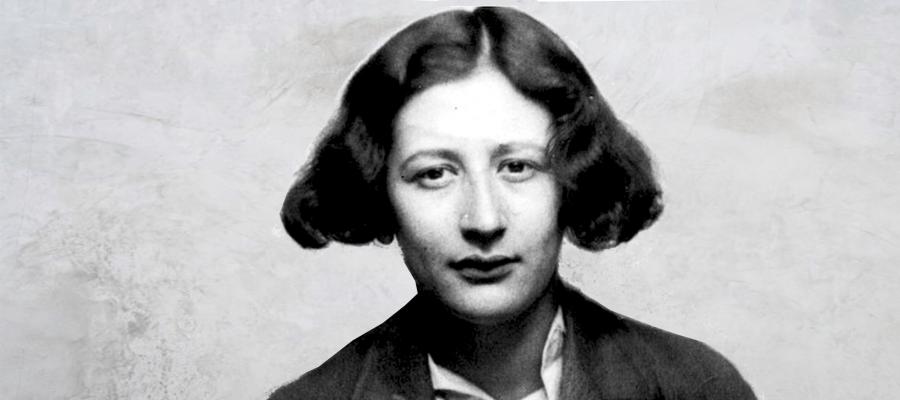Simone Weil
Oct 27, 2024French philosopher and mystic Simone Weil was also an activist whose goal was to elevate the lower classes.

Simone Weil was an early 20th-century French philosopher who was born into a Jewish family but later adopted a mystical form of Christianity. One of her central ideas is that it's vital to listen really hard to other people, striving as hard as you can to hear what they're saying, how they're living, how they're suffering, who they are. You have to set aside all your own desires and projects and likes and dislikes, and let your entire inner world be taken over by the life of someone else. Weil even put this idea into practice, by leaving her cushy teaching job and working in a factory for six months. She wanted to know what it was really like.
Of course, working in a factory for just a few months—safe in the knowledge that you can go back to teaching at any moment—doesn't tell you everything about what it's like for people who have to do it forever. And it could be misleading in other ways, too. What if you visit a factory and the manager only lets you talk to the satisfied employees, while keeping the disgruntled ones in the back room? Or what if you just happen to meet the one employee who’s genuinely content with their lot, at a factory where everyone else is miserable? Weil was aware of these worries. (It's one reason she spent a full six months in that factory, rather than just visiting for a day or a week.) Attention, she believed, isn’t a one-shot deal: you’ve got to go out and talk to all kinds of people, and really listen to them, as deeply as you possibly can.
Once you have enough information about how things are for other people, the next step is to do something about it. Weil herself helped dissidents flee from Germany when Hitler rose to power, and when the civil war broke out in Spain, she went to fight against the fascists. The point of all that contemplation is not to avoid acting, but to make sure you take the right action. You need to make sure you're genuinely helping, rather than giving people something they didn't really want.
But it's still possible to see Weil as an overthinker, especially given her later thought: she ended up moving away from enacting political change and toward Christian mysticism. She said: “We must abandon the notion [of progress]. We must get rid of our superstition of chronology in order to find Eternity.” For non-Christians—and even for some Christians—that may well sound like giving up too much. And while there's something incredibly touching about her claim that absolutely everything can be beautiful, since if we just look hard enough at the world, we will see the face of God—“we must love all facts… because in each fact God is there present"—it's really not clear that "God is present" in the oppression of factory workers, whose suffering Weil wanted us to pay attention to. And it's definitely not clear that we should "love" the horrors of the 1940s. Hopefully our guest will help out sort out these conflicting strands of Weil's philosophy: it's Rebecca Rozelle-Stone, author of Simone Weil: A Very Short Introduction.
Comments (4)
FreyCat78
Friday, November 15, 2024 -- 7:48 PM
This is very interesting andThis is very interesting and I love the content of this blog. I agree that it is very vital one person to listen hard and carefully to another person.
baylaundry
Sunday, November 24, 2024 -- 11:09 PM
This is a thought-provokingThis is a thought-provoking post that beautifully highlights the power of observation, attention, and freedom in our lives.
alemadcars
Thursday, November 28, 2024 -- 3:26 AM
Looking, Listening,"Looking, Listening, Liberating" encourages a deeper awareness of our surroundings and the power of active engagement in creating meaningful change and liberation for all.
mohre56
Sunday, June 29, 2025 -- 6:51 AM
This method entails using theThis method entails using the eNetwasal complaint tracking page. Go to this page and input your MOHRE complaint status check number.